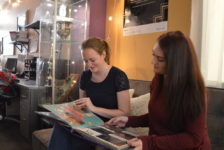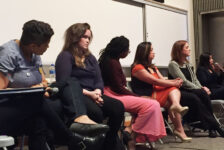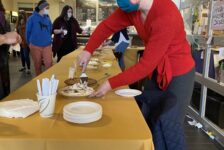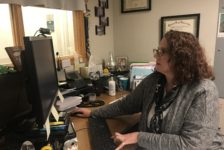Westminster’s Ranjan Adiga, English professor, holds a new perspective about the college’s atmosphere, which he developed as a result of growing up in Nepal and traveling all over the world. Before coming to Utah, Adiga lived in Kathmandu, India, Thailand, Bahrain, Hawaii and North Carolina. Despite having no formal creative writing instruction until he was enrolled in a master’s program, he has embraced the challenge of writing in a second language and exploring his homeland through a new lens.
Q: What was your first impression of Westminster when you began teaching here?
A: The small class sizes were attractive, but also challenging having come from a public university in Hawaii. The demographic was different, too. I had to learn to strike the right balance between using my experiences and cultural background to further discussions in the classroom, while simultaneously making sure that I demonstrated just the right amount of assimilation to not overwhelm the students. This is a challenge that I constantly reflect on.
Q: What is some of the writing you’ve published?
A: I’ve had a few short stories published in different literary journals across the nation in the U.S… Although I write in English, my second language, all of my stories are inevitably set in Nepal… I write it from the perspective of someone who is an insider and an outsider, me having lived outside of Nepal for some time now. I think gives me the distance to look back at that culture through an interesting lens.
Q: Why do you write in English (your second language)?
A: It gives me the distance and perspective to observe and re-imagine Nepal, my country that I’m constantly fascinated by. Also, writing is a more labored process than talking, and English forces me to gather my thoughts more deliberately. It’s still a language that I struggle with, and I enjoy that struggle.

Ranjan Adiga, a Nepali professor of English at Westminster College, traveled all over the world before settling in Utah. “I think culture is an interesting thing because it’s underestimated and overestimated at the same time,” Adiga said. “So, when I compare typical Nepali lifestyle with an American lifestyle, I can find a lot of similarities.” Photo by Megan Skuster
Q: What was it like growing up in Nepal?
A: I think culture is an interesting thing because it’s underestimated and overestimated at the same time. So, when I compare typical Nepali lifestyle with an American lifestyle, I can find a lot of similarities…all of us feel anger and love and jealousy, but when you put those feelings into specific cultures, it’s interesting how it’s translated in very different ways. Broadly, Nepal is a very community-based society; it’s not necessarily a very individualistic society… I grew up in a neighborhood where everyone knew each other, so it was very normal to people to just drop by your house without prior notice… our doors were more or less left open in anticipation of someone dropping over for tea or morning breakfast or something…. In the U.S., it’s a very sort of isolated existence.
Q: Did you know anyone or any places that were affected by the earthquake last year?
A: My hometown has been devastated, pretty much. Kathmandu, the city where I grew up, is a city of old temples. There’s pretty much a temple or a monastery in every neighborhood. Like in the U.S., you might have a Wal Mart in every neighborhood. Well, in Nepal we have temples in every neighborhood, and those temples give a lot of character and personality to the street… almost all those temples were built 200 or 300 years ago, made of old brick. And 80 percent of those temples are gone. In that sense, it’s really devastating, those big landmarks that I grew up with. But fortunately, my family is safe and our house is pretty much unscathed. People I know are safe for the most part, but overall, the cityscape has been transformed pretty dramatically. When I go back next, I might not recognize it anymore.
Q: What golden piece of advice would you give to students who want to pursue writing?
A: You have to be willing to slug it out like in every other field. In terms of writing, it means constantly being open to revising. Writing is revising. Writing is rewriting. It’s a constant process of constantly reflecting on what you’ve wrote and re-writing it for a better piece. To be a writer, you have to have very open ears and eyes and mind to the world around you. Those things cannot be taught. You have to be a keen observer and have a lot of curiosity about other people. At Westminster, we talk a lot about global consciousness… a writer needs that more than any other discipline.
Adiga teaches Bollywood and Beyond in May Term. The course focuses on exploring how colonial education and language have shaped cultures and identities in South Asia, Sub-Saharan Africa and the Caribbean. It also investigates themes that preoccupy the postcolonial imagination such as colonization, hybridity, immigration and arranged marriage vs. love marriage.









